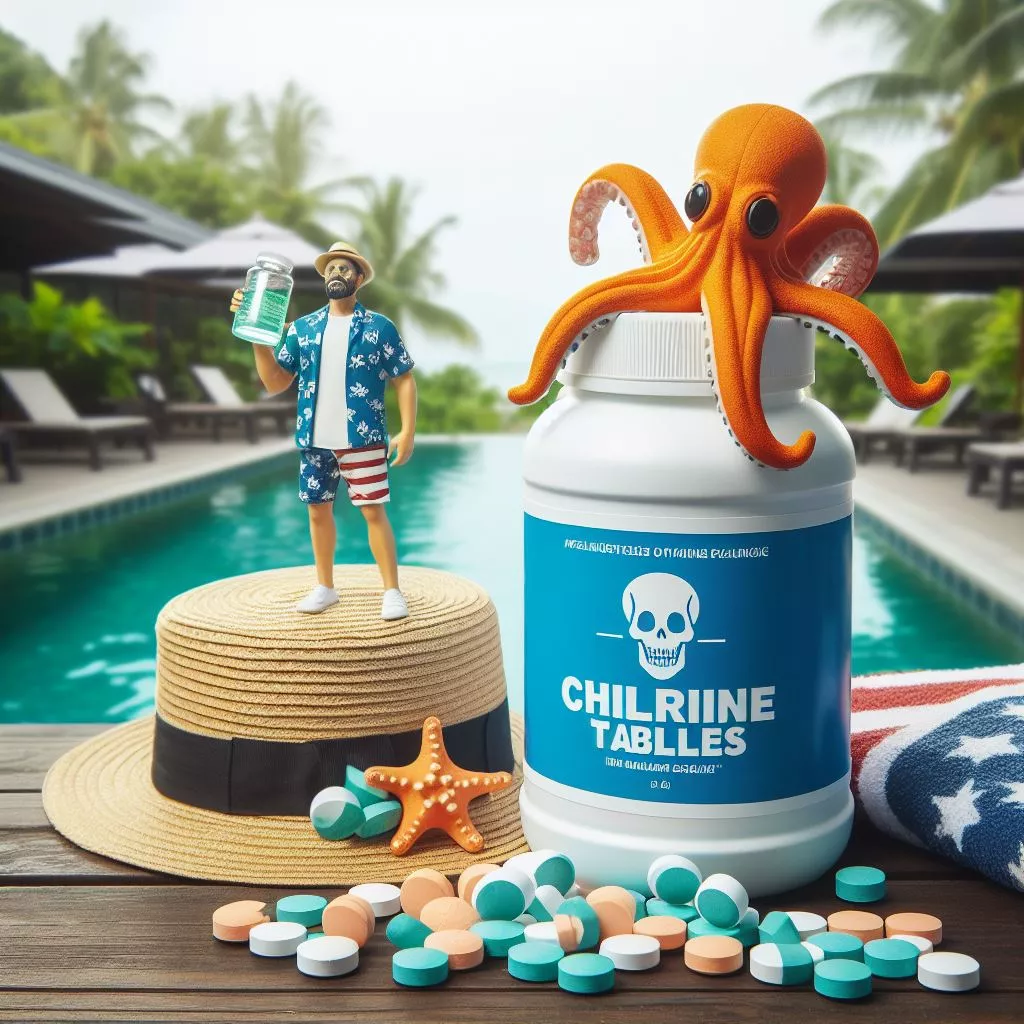Maintaining a crystal-clear pool requires the strategic use of chlorine tablets. However, over time, these tablets may lose their potency, affecting their ability to sanitize and keep the water safe. This article aims to provide pool owners with a comprehensive guide on how to discern whether chlorine tablets have expired and are no longer effective in maintaining water quality.

Understanding the Shelf Life of Chlorine Tablets
Expiration Period
Chlorine tablets, like any chemical product, have a shelf life. The typical expiration period is influenced by factors such as storage conditions and the specific formulation of the tablets.
Storage Conditions
Proper storage is crucial to extend the shelf life of chlorine tablets. Exposure to moisture, extreme temperatures, or direct sunlight can accelerate degradation.
Formulation Differences
Various brands and formulations may have different expiration timelines. Understanding the specific characteristics of the chlorine tablets in use is essential.
Indicators of Expired Chlorine Tablets
Color Change
Sign: Fading or discoloration of the tablets.
Explanation: Exposure to light and air can cause chlorine tablets to lose their original color. A noticeable change may indicate a decline in effectiveness.
Texture Alterations
Sign: Tablets become crumbly or powdery.
Explanation: Over time, chlorine tablets may break down, leading to changes in texture. Crumbling or powdery tablets may not dissolve properly in water.
Strong Odor
Sign: Unpleasant or strong chemical odor.
Explanation: Expired chlorine tablets may emit an unusual odor, signaling a breakdown of the chemical composition. Fresh tablets should have a distinct chlorine scent.
Ineffectiveness in Dissolving
Sign: Tablets take longer to dissolve or fail to dissolve entirely.
Explanation: Expired tablets may lose their solubility, impacting their ability to release chlorine into the water effectively.
Reduced Chlorine Levels
Sign: Inadequate chlorine levels in the pool despite tablet usage.
Explanation: Testing pool water regularly is crucial. If chlorine levels remain low despite tablet application, it could indicate expired tablets.
Change in Water Quality
Sign: Algae growth or cloudy water despite regular tablet use.
Explanation: Expired tablets may not effectively combat contaminants, leading to visible changes in water quality.
Methods to Confirm Tablet Expiry
Check Expiry Date
Method: Review the expiration date on the tablet packaging.
Importance: The most straightforward method is to check for a specified expiration date provided by the manufacturer.
Perform a Dissolvability Test
Method: Place a tablet in a container of water and observe its dissolution.
Importance: Rapid dissolution indicates freshness, while slow or incomplete dissolution suggests expiration.
Smell Test
Method: Smell the tablets for any unusual or strong odors.
Importance: A recognizable chlorine scent is normal, but a pungent or off-putting smell may indicate expiration.
Conclusion
Identifying expired chlorine tablets is crucial for maintaining a healthy and safe swimming pool environment. By paying attention to visual cues, checking for changes in texture, performing dissolvability tests, and monitoring chlorine levels, pool owners can ensure they are using effective chlorine tablets. Regularly inspecting and replacing expired tablets contribute to the overall success of pool maintenance, ensuring water clarity, and safeguarding swimmers against contaminants.
